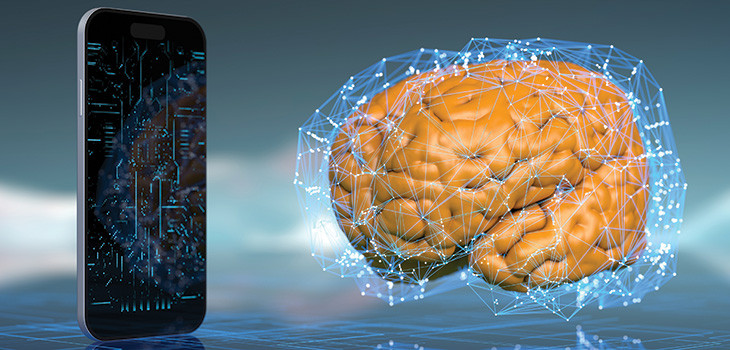*/

In an era where the surge of artificial intelligence (AI) captures global attention, an equally important but less discussed advancement is making waves – the intersection of neurotechnology and law. This pivotal juncture in human innovation has prompted the establishment of the Institute of Neurotechnology & Law, spearheaded by Harry Lambert, a barrister with a unique blend of expertise in product liability, privacy, and medical law.
In recent years neurotechnology has made great strides, and we now live in a world where brain to brain communication, memory scanning and transcription of thoughts to text (to name but a few) are all possible. As neurotechnology swiftly evolves, its integration into everyday life will have profound implications on privacy, ethics and personal autonomy. Suddenly we need to protect a whole new raft of rights that we never imagined needed protection; what the ethicist Rafael Yuste has called ‘neurorights’.
The foundation of the Institute comes at a critical time. It is no exaggeration to say that recent advances in neurotechnology mark a crucial moment; it is imperative that we engage in balanced and informed debates about neurorights.
The Institute of Neurotechnology & Law aims to ensure that as these technologies develop, they do so in a manner that aligns with the best interests of humanity. The core mission is to foster discussions that will guide the responsible development of neurotechnological innovations. By bringing together legal experts, technologists, bioethicists and policymakers, the Institute seeks to build a robust framework for ethical governance and legislation in this dynamic arena.
It’s common to hear debates surrounding AI, but the fascinating topic of neurotechnology and its legal implications remains largely in the shadows. The Institute of Neurotechnology and Law is set to change that, ensuring that this area receives the attention and scrutiny it deserves. Find out more at www.neurotechlaw.com

In an era where the surge of artificial intelligence (AI) captures global attention, an equally important but less discussed advancement is making waves – the intersection of neurotechnology and law. This pivotal juncture in human innovation has prompted the establishment of the Institute of Neurotechnology & Law, spearheaded by Harry Lambert, a barrister with a unique blend of expertise in product liability, privacy, and medical law.
In recent years neurotechnology has made great strides, and we now live in a world where brain to brain communication, memory scanning and transcription of thoughts to text (to name but a few) are all possible. As neurotechnology swiftly evolves, its integration into everyday life will have profound implications on privacy, ethics and personal autonomy. Suddenly we need to protect a whole new raft of rights that we never imagined needed protection; what the ethicist Rafael Yuste has called ‘neurorights’.
The foundation of the Institute comes at a critical time. It is no exaggeration to say that recent advances in neurotechnology mark a crucial moment; it is imperative that we engage in balanced and informed debates about neurorights.
The Institute of Neurotechnology & Law aims to ensure that as these technologies develop, they do so in a manner that aligns with the best interests of humanity. The core mission is to foster discussions that will guide the responsible development of neurotechnological innovations. By bringing together legal experts, technologists, bioethicists and policymakers, the Institute seeks to build a robust framework for ethical governance and legislation in this dynamic arena.
It’s common to hear debates surrounding AI, but the fascinating topic of neurotechnology and its legal implications remains largely in the shadows. The Institute of Neurotechnology and Law is set to change that, ensuring that this area receives the attention and scrutiny it deserves. Find out more at www.neurotechlaw.com


Now is the time to tackle inappropriate behaviour at the Bar as well as extend our reach and collaboration with organisations and individuals at home and abroad
A comparison – Dan Monaghan, Head of DWF Chambers, invites two viewpoints
And if not, why not? asks Louise Crush of Westgate Wealth Management
Marie Law, Head of Toxicology at AlphaBiolabs, discusses the many benefits of oral fluid drug testing for child welfare and protection matters
To mark International Women’s Day, Louise Crush of Westgate Wealth Management looks at how financial planning can help bridge the gap
Casey Randall of AlphaBiolabs answers some of the most common questions regarding relationship DNA testing for court
Maria Scotland and Niamh Wilkie report from the Bar Council’s 2024 visit to the United Arab Emirates exploring practice development opportunities for the England and Wales family Bar
Marking Neurodiversity Week 2025, an anonymous barrister shares the revelations and emotions from a mid-career diagnosis with a view to encouraging others to find out more
David Wurtzel analyses the outcome of the 2024 silk competition and how it compares with previous years, revealing some striking trends and home truths for the profession
Save for some high-flyers and those who can become commercial arbitrators, it is generally a question of all or nothing but that does not mean moving from hero to zero, says Andrew Hillier